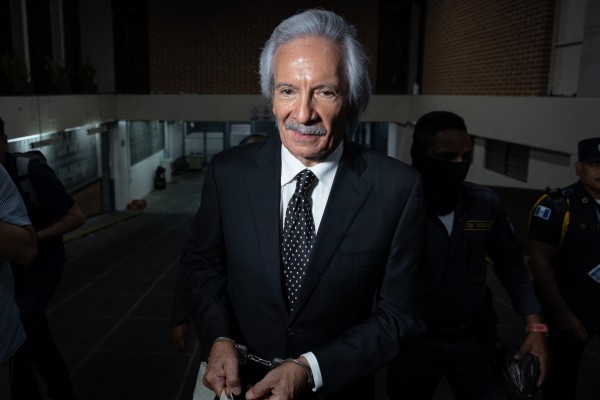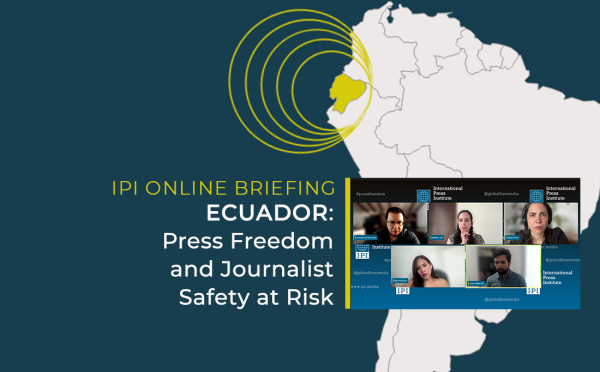Brazilian journalist Valerio Luiz de Oliveira was killed by an attacker on July 5, as he was leaving the headquarters of Radio 820 AM in Goinania, Brazil. According to local newspaper, Diário da Manhã, a motorcycle pulled up to Luiz’s car as he was leaving the station and fired seven shots into the driver’s side window, killing him before paramedics could arrive.
The local paper reported that the assailant was waiting outside of the radio station and ambushed Luiz as he began driving away. Police and eyewitnesses accounts said Luiz was struck by six bullets as he left the station. After the shots were fired, Luiz reportedly steered erratically into a parked car.
The victim’s father, Manuel de Oliveira, also a long-time sports journalist, was on the scene shortly after the shots were fired. Diário da Manhã reported the father claimed to know the murderers, shouting, “They killed my son, I know who it was that he killed my son. Why is he doing this?”
Luiz, 49, a veteran of sports journalism, was well known for his outspoken views, but also reportedly well loved in the journalism community. During his lengthy career, he hosted a number of radio talk shows and provided sports commentary for many television stations.
At a Monday press conference, his wife, Lorena de Oliveira, said Luiz had received threats. According to Brazilian media organization Globo, he was warned that someone would “retire” him, “ending his career.” Lorena de Oliveira said they heard the threats, but “never imagined that something like this would happen.”
Manuel de Oliveira said his son was claimed by football. “I’m not saying it was someone from the team, but I think it has something to do with his comments about football,” said.
According to police, debt and passion have been ruled out as motives for the killing, and initial investigations are exploring connections to his career as a journalist.
“We at the International Press Institute (IPI) are saddened by the loss of Valerio Luiz de Oliveira, and extremely disappointed by the recent rash of journalists’ deaths in Brazil,” Alison Bethel McKenzie, executive director of IPI, said. “We insist on a renewed commitment in Brazil to protecting members of the press.”
According to IPI’s Death Watch, Luiz’s killing, if connected to his work, would bring the total number of Brazilian journalists killed in 2012 to four. As previously reported by IPI, in February, political journalist Mario Randolfo Marques Lopes, along with his girlfriend, were killed, only months after an unsuccessful attempt on his life. Also in February, Pauolo Roberto Carlos Rodrigues was attacked and shot by two motorcyclists as he was driving home. In April, prominent political journalist and blogger, Décio Sá, was approached in a bar by an unknown assailant and shot four times in the back of the head.
At present, none of the crimes have been solved.
“We are especially aggrieved that none of these criminals has been brought to justice,” Bethel McKenzie said. “It is imperative that these killers be brought before a judge and a message be sent that the coordinated killing of media members will not be tolerated.”


